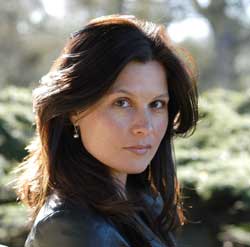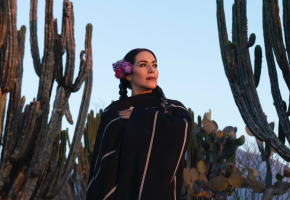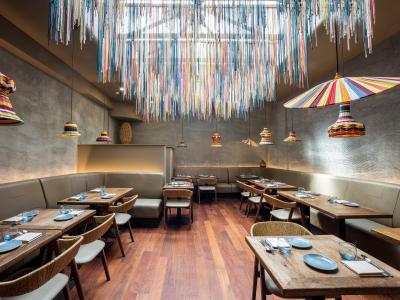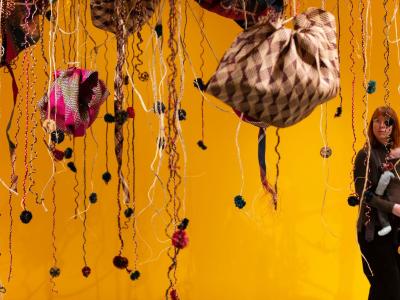I come from very contrasting cultures. I always said my father was from the highest country in the world (Bolivia) and my mother from the lowest (the Netherlands). And that is where the contrasts begin, because these cultures couldn’t be more different. Although I have very fond memories of early trips to Holland, my strongest impressions were formed when visiting my grandmother in La Paz. She lived in a crumbling colonial style house in the middle of what they now call the witches market. It could not have been more colourful or impacting. The native languages, traditions and beliefs were very present.
My Bolivian grandfather was a folk musician and composer, as well as a writer and political activist who campaigned for the rights of the indigenous people. He was Aymara, a formidable and complicated character, and I am sorry I never had a chance to meet him.
My earliest memory is actually of my mother listening to me playing the piano. I was around two when my father, an avid music lover, brought to the house a small spinet. I wanted to learn to play so badly. My parents lived very modestly, essentially in one room, and although they weren’t musicians they encouraged my progress as much as they could. By sheer coincidence my mother had met a wonderful Hungarian pianist and pedagogue (Yda Novik), so when she ran out of ideas on how to help me she took me to her to ask for advice. Mrs. Novik took me on and basically everything flew from there.
I had the best possible teachers when growing up. At the age of twelve I was offered a scholarship by the OAS to study with the magnificent Leon Fleisher. He remained my only teacher until he kicked me out of the nest when I was eighteen. I had been performing throughout this period, and then I was offered the post of cultural attache at the Bolivian Embassy in Paris. So I moved to Europe, becoming the youngest diplomat in the service.
Over the course of time I met and had the privilege of getting to know many of my great heroes, pianists like Radu Lupu and Martha Argerich, and also of working closely with the violinist Ivry Gitlis, who opened me up to the world of chamber music and so much more. Their human qualities struck me in some cases even more than their artistic ones. I feel like the recipient of an amazing amalgam of experience. What I do can be described in many ways.
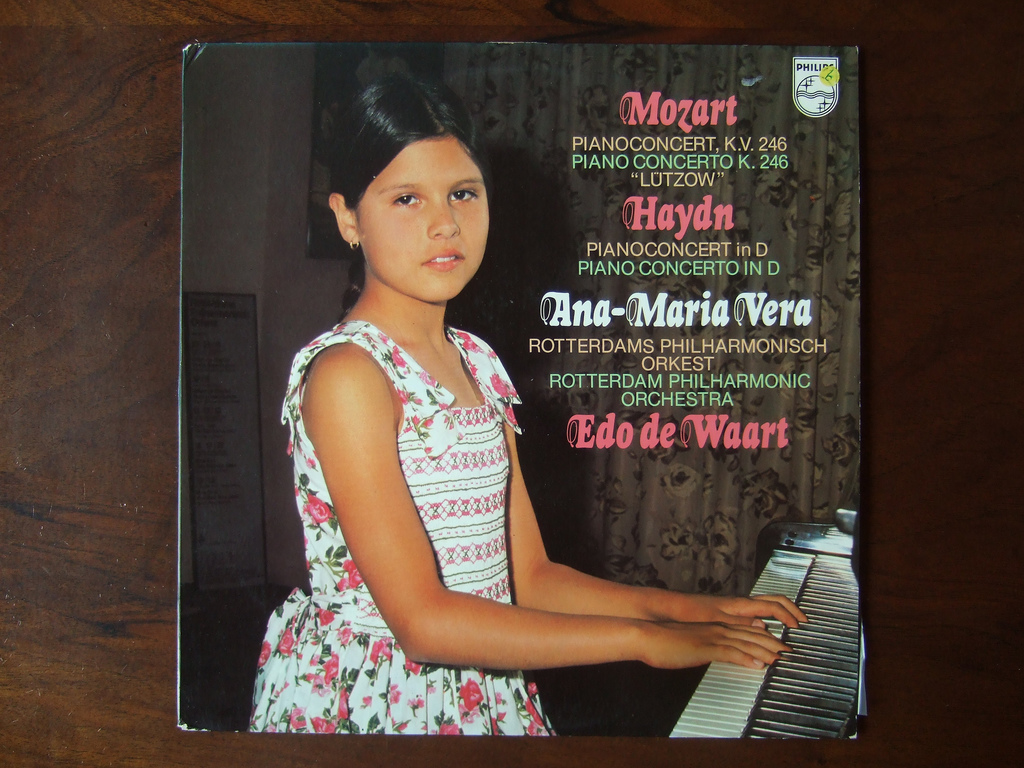
As a pianist you spend hours and hours alone with the instrument. It can be a very lonely profession. But that solitude becomes a meditative experience. You embrace it and it takes you to places you could never reach otherwise. From there you go on stage and connect with an audience, fueled by adrenalin which might be compared to riding a wave. Although you have to be the master of the situation, you also have to let go. It’s a beautiful, spiritual, sometimes in equal parts elating and seemingly death-defying experience.
I love what I do. I have never known any other life really. But times have changed and now it is about much more than just shutting yourself away with the instrument and plumbing the depths of your art. Marketing and networking has taken on a greater importance. The classical music world, exclusive bubble that it is, has not always moved with the times and in trying to catch up sometimes goes to the other extreme where commercial considerations prevail.
What I love about my profession is that time is on your side, you improve with age and experience. Things go in cycles, you are always learning, always struggling, but some things become easier. I know for example that I have become very economical, efficient if you will, so that I don’t have to practice as much to arrive at a certain level of preparation. I think the biggest obstacle might have been learning discipline from such an early age. But once it is instilled it serves you well for the rest of your life. I felt very welcomed in London when I first arrived. I know that it can be a daunting place, but for me it is a city where you can reinvent yourself, where you have the best of everything all around you, you feel that energy, that aspiration and it is inspiring.
What I love about the British is the dry self-deprecatory humour, the deep-rooted appreciation of the arts. It is a nuanced and sophisticated culture which seems to me very open to the world, very outward-looking. What has kept me driven is the fact that it’s never enough, you can always do better. On a personal level, what makes me most happy now is being with my family, particularly my daughter Naira. I have recently spent one day away from both keyboards, walking around London with abandon and it felt completely wonderful. In the past, music was enough, it was everything, and that can be a curious, addictive state. I feel I have balance in my life now, much more perspective and distance, in the best way.
The living person I most admire? My first reaction is to say - my husband John, for managing to put up with me and my darker sides. On a more serious note, I have always admired women who can manage to combine a career and a family. Ironically, now that as I am taking on more and I get older, there are moments where it feels more possible to have it all. My biggest dream is the one I am living now. Having started the Bolivia Clasica music project has been the culmination of a long-held wish to be able to contribute something to a country I love and which has enormous untapped potential. Creating cultural bridges between Bolivia and the rest of the world and in particular the UK has been deeply rewarding. There is no greater satisfaction than seeing my colleagues arrive in Bolivia and discover a whole new world, a world where classical music can truly thrive given just a few key ingredients. It is my mission to provide these missing ingredients on a larger scale. Combining art and social responsibility is where I see my future in the longer term.
Ana Maria Vera is the founder of Bolivia Clasica who trains young Bolivian Classical Musicians http://boliviaclasica.com/


